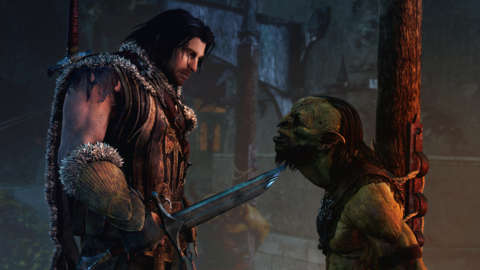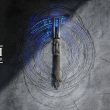E3 2014: Middle-earth: Shadow of Mordor is the Assassin’s Creed Game I Always Wanted
I have a difficult task ahead of me. I need to try to convey why, after just the first day of E3, Middle-earth: Shadow of Mordor is quite likely my personal game of the show. This open world stealth-action game, which sees you become a supernatural entity called a wraith and sow chaos amongst the ranks of Orc warlords, is the sum of many parts. Like Assassin's Creed, you can freely climb almost any surface. Like Batman: Arkham Asylum, combat is about mashing attack and occasionally responding to counters or special moves. Like Far Cry 3, you can pit hostile wildlife and opposing factions against each other to accomplish your objectives for you. But it's that Assassin's Creed influence--one that sparked developer accusations of identical code--that is strongest.
Assassin's Creed began a series of games that seemed full of possibility. Ubisoft's original intention to explore social stealth and artificial intelligence that reacted to your behaviour, not just your presence, implied whole new kinds of interactions in an open world game. And though the Assassin's Creed series has delivered surprises, I have been unable to shake the sense that its games have iterated too slowly on a now well-established formula. Shadow of Mordor takes that formula and does something seriously impressive with it that doesn't involve adding pirate ships. The game focuses on the consequences of your acts of assassination, and how they ripple through the ranks of the remaining Orc horde.
The significance of finding and killing a target has been greatly expanded over that of Assassin's Creed. Both Orc captains, and more powerful Orc warlords, have individual levels of power, unique strengths and weaknesses, and important relationships to one another. In Assassin's Creed, you locate and murder a target, then move on to the next scripted chunk of story. In Shadow of Mordor, assassinating a target causes dynamic shifts in power amongst his subordinates. They will fight to be his replacement; possibly even kill each other for the opportunity, completely of their own accord. The strategic side of choosing who to assassinate, and when, is just as important as the skill required to physically close in on a target and take them out.
In Shadow of Mordor, assassinating a target causes dynamic shifts in power amongst his subordinates.
However, as a wraith, you aren't confined to the physical realm. Your supernatural powers allow you to teleport to enemies and perform ghostly takedowns, or to make them serve your own purpose. This domination mechanic is key to how Shadow of Mordor goes well beyond Assassin's Creed. Removing a target from play isn't the end of that enemy. Dominated Orc captains can be ordered to betray their warlord masters, bringing them out in the open for an easier kill. If a warlord is then dominated, he and his army can be sent to cause a riot with another warlord, creating a power struggle that changes the entire setup of your next assassination mission.

What appears to make Shadow of Mordor even deeper is the fact that your choices in dominating Orcs and sending them against their brethren don't result in immediate, scripted consequences. They simply change the landscape of the next major encounter. Once that encounter begins, who lives and who dies is still entirely governed by the systems that determine an enemy NPC's strengths, weaknesses, and combat aptitude. An Orc captain who is scared of fire will still flee from a major battle, regardless of whether you intervene. A warlord who is vulnerable to attacks from aggressive wildlife will still be gored by roaming fauna, even if you did not set up the attack. In my hands-on time with the game, I experienced instances in which significant characters were killed off-screen and entirely without my intervention. The result is a highly ambitious twist on the open-world stealth-action formula established by Assassin's Creed; a twist that makes the act of assassination significant through systems that appear to always be given preference over scripted plot.
It seems like everything I've been wanting from an Assassin's Creed game is at the core of Shadow of Mordor. In the time I played, I was repeatedly flabbergasted by the continual layering of deep systems and large-scale consequences that I never expected. Though it may be comprised of familiar parts, I think Shadow of Mordor has earned the right to own such blatant copying, for the game brings those parts together in ways that make for an entirely fresh open world experience.
See more coverage of E3 2014 →









